Featured
Energizing the Undergraduate Pipeline

“Racist policies are defined as any policy that leads to racial inequity… intent of the policymaker doesn’t matter. It’s all about the fundamental outcome.”
—Ibram X. Kendi, author of How to Be an Antiracist, to Ezra Klein (Klein, 2021)
What does unintended racism look like in the university setting?
In 2018, one of us (Arthur) and a colleague were recruiting a Black student for the graduate program in cognitive science in the Department of Psychology at Arizona State University (ASU). The student’s record was promising and included strong letters of recommendation, experience in several research labs, and presentations at local and national conferences. But the student’s GRE scores were far below those of other applicants. After much debate, the cognitive science faculty voted against offering admission.
Feeling unsettled by this outcome and curious about the history of diversity in the cognitive science program, Arthur discovered that there had not been a Black cognitive science graduate student at ASU for at least 40 years. Thus, even if the ASU psychology department had made significant strides toward diversity, equity, and inclusion, by Ibram X. Kendi’s standard (quote on previous page), at least some policies within the department had unintended racist outcomes that required immediate corrective action.
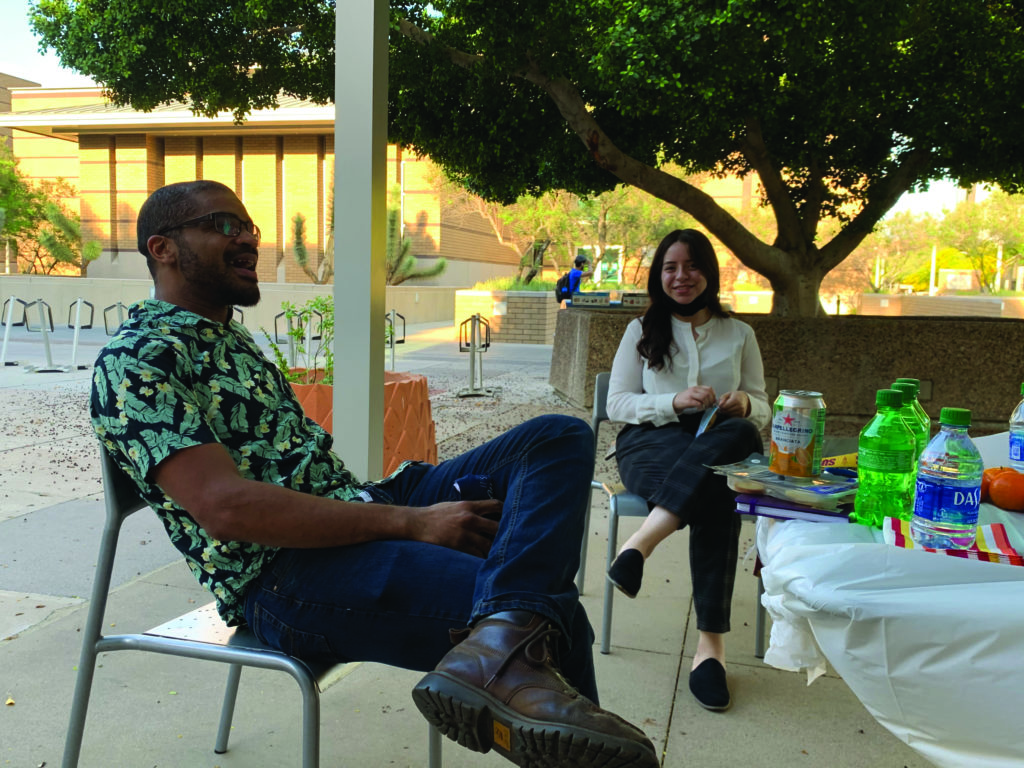
In 2019, that call to corrective action led the department to spearhead the ENERGIZE initiative. The goal of ENERGIZE is to create a pipeline for undergraduates who are underrepresented in psychological science, whether by racial or ethnic background, age, disability, or other factors. The pipeline leads from their classes into research labs and then onto graduate programs and, ultimately, faculty positions. The initiative’s name reflects its dual strategies: It energizes students’ interest in scientific psychology, and the students simultaneously energize laboratory research by bringing to bear their lived experiences to help guide research questions. This enriched lab environment makes both research and students’ lab experiences more relevant.
Getting energized
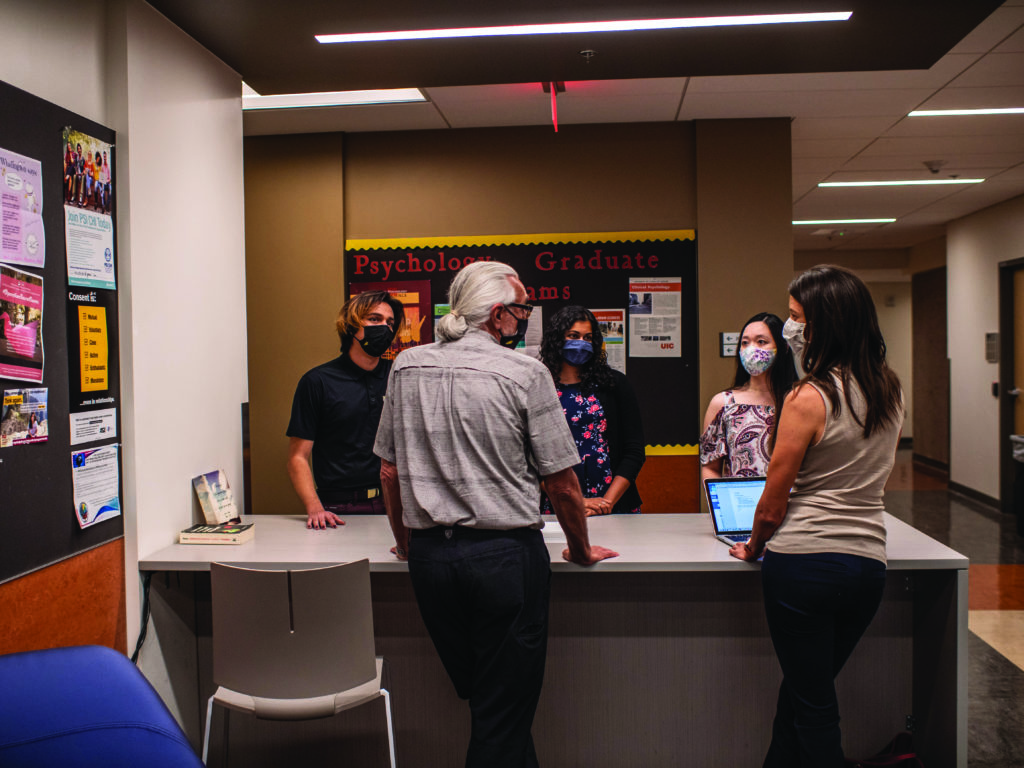
With full support from the department chair, the first steps we took to establish ENERGIZE included securing cooperation from multiple labs and setting expectations with lab directors. We have identified three main expectations for participating labs:
First, each lab should set aside at least one position for ENERGIZE students.
Second, each lab director should be flexible with criteria for lab membership, including academic preparation and amount of time committed to research activities. Given the various challenges that are associated with underrepresentation, we recognize that some ENERGIZE students may not yet have acquired laboratory skills or experience in using statistics, methods, or other empirical processes. Some students may need to balance lab responsibilities with financially supporting themselves or their families or caring for family members. Additionally, some students may not have easy or consistent access to campus. For all these reasons and more, underrepresented students may not have as many hours to devote to the lab as other students, and the hours they do have may be at unusual times.
Third, each lab director should commit to face-to-face mentoring of ENERGIZE students, such as by including them in high-level lab meetings.
An important aspect of this plan is that each lab director needs to weigh the expectations we have identified when deciding whether to admit a student. The ENERGIZE team only recommends students. Lab directors make their own decisions regarding students’ acceptance.
We next focused on optimizing student recruiting—but our first attempt was pathetic! We set up a table at a recruiting fair for undergraduate research assistants (RAs), but of course most students who came to the fair already knew they wanted to participate in psychological research and understood the importance of that participation for acceptance to graduate study. Their mere presence at the recruiting fair meant they were not our target group.
Our subsequent recruiting attempts have been much more successful. Now, Arthur gives a 10-minute in-class presentation to introductory and junior-level classes. The presentation focuses on the general benefits of conducting research and how fun it can be. He also explains how ENERGIZE has been designed specifically for underrepresented students. Each presentation has resulted in multiple applications.
The in-class presentations have also taught us an important lesson on systemic racism—namely, that not all students are aware of the opportunities and pathways for academic advancement after completing a bachelor’s degree. Often, underrepresented students tell us they had no idea that laboratories recruited students as research assistants—even though many lab directors and faculty assume this is common knowledge among undergraduate students. The students have also told us they did not realize that joining a lab is one of the best ways to secure a letter of recommendation required for graduate studies. These students are being left out of undergraduate opportunities essential to academic advancement because of a simple lack of information.
In early 2020, the COVID-19 pandemic required us to change our recruiting strategies again. We pivoted from in-class presentations to offering a 4-minute video (available on the ENERGIZE webpage) to instructors. We ask faculty to either play the video for their classes at the beginning of the semester or link to it in their syllabus or on their course’s home page. The video has not been as effective as in-person recruiting, perhaps because pandemic-related constraints have disproportionately affected underrepresented groups. Even so, we have recruited more students with this method than we did with our first attempt at the RA fair. As of late April, 25 ASU psychology labs (representing about 45% of the department) are supporting around 80 ENERGIZE students.
Scaling up the process
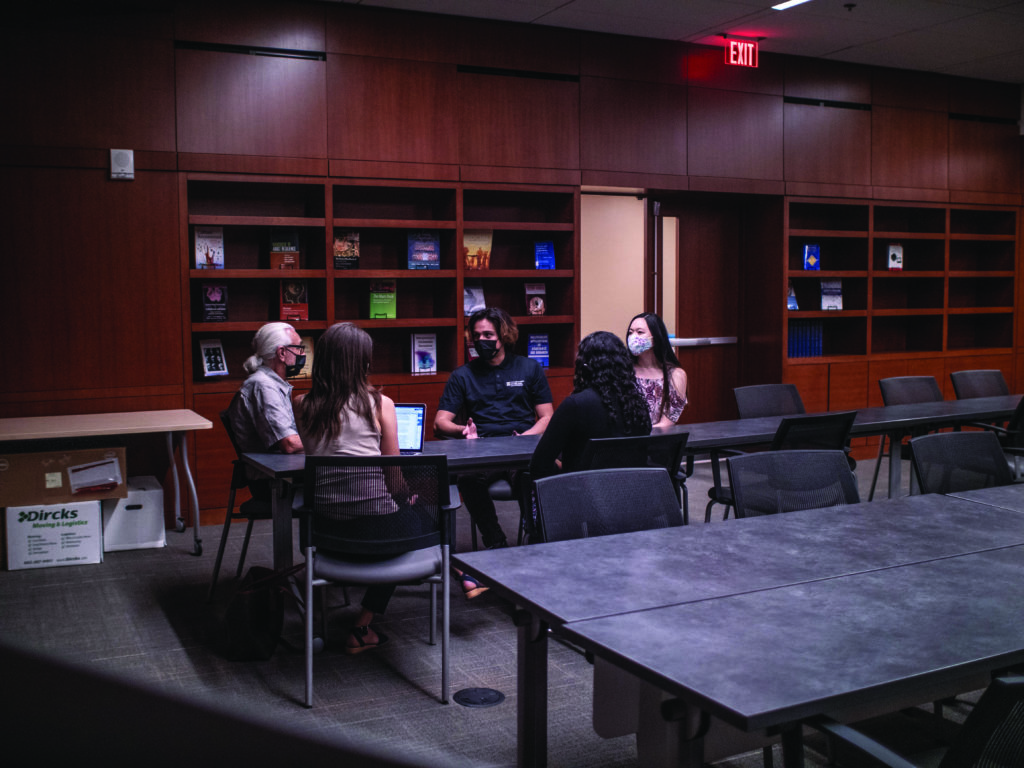
As interest in ENERGIZE has grown, we have realized we need to optimize the application process. For example, some students have applied to all participating labs—maybe because they really did find them all fascinating, or perhaps because they wanted to increase their chances of being accepted. The early versions of the application process also gave little information to the lab directors about why the student might be interested and what skills they had. We changed the application process to allow students to apply to as many labs as they want, but we also ask them to describe why they are most interested in up to three top choices.
ENERGIZE’s initial successes in connecting students to labs has led to both procedural and conceptual changes. The ENERGIZE team and participating lab directors now use shared, online spreadsheets to track students’ progress through the application, interview, and acceptance process. Once a student’s application is received, we assign them to a graduate student for short-term mentoring. So far, about 30 ASU psychology graduate students have volunteered to mentor ENERGIZE students and prepare them for an interview. Graduate student mentors help answer prospective ENERGIZE students’ questions: What clothes should they wear? How should they address a professor? What should they read about the lab?
Limited research positions and mismatched interests mean that not all ENERGIZE applicants end up in a lab. We are currently broadening the scope of the program to support even those who don’t. Plans include creating a one-credit professional development seminar open to all ENERGIZE students, whether they are currently in labs or still seeking research experience. The seminar will cover topics like how to prepare a poster or give a succinct 15-minute presentation. We also plan to host monthly dinners to facilitate networking and mentoring. To date, these plans have been on hold because of COVID-19 concerns.
Funding the future
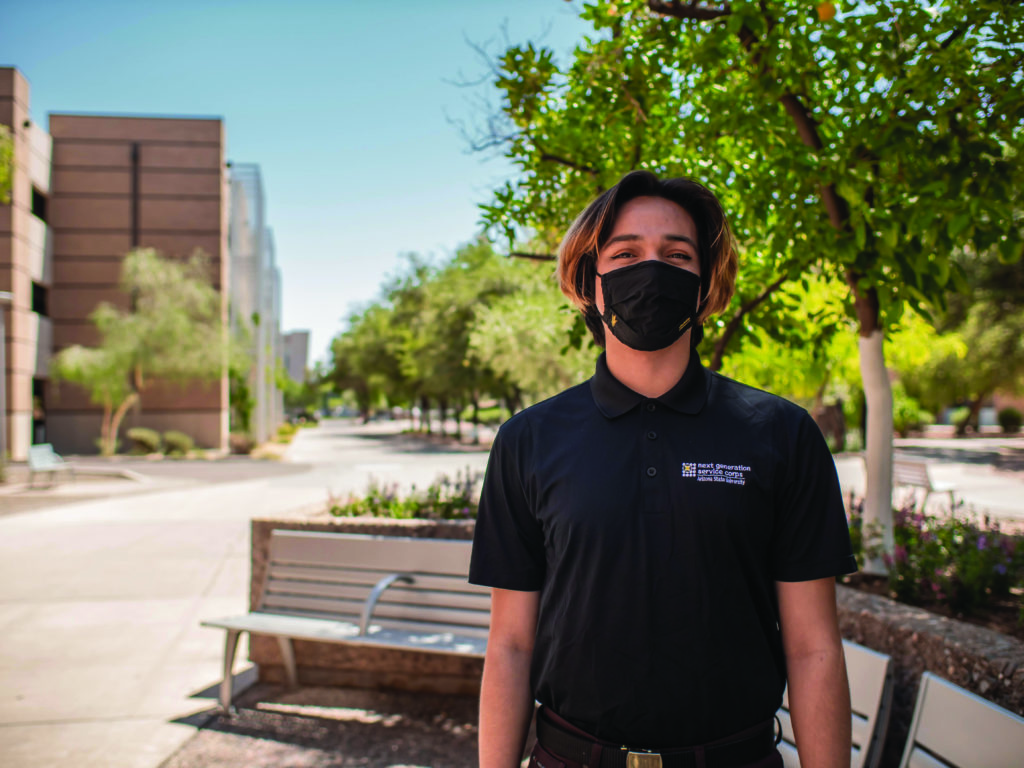
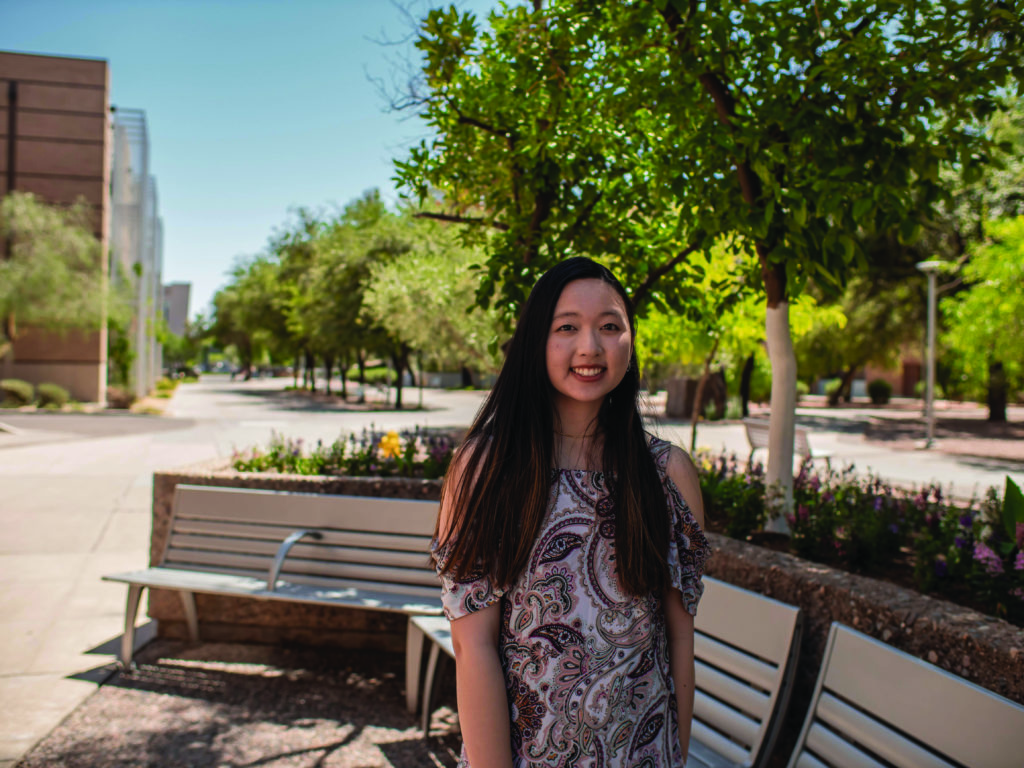
ENERGIZE has benefited from tremendous community financial support, and we are deeply grateful. Much of the support has come from the Jenessa Shapiro Undergraduate Research Scholarship. Jenessa and her husband, Noah Goldstein, were graduate students at ASU and then faculty at the University of California, Los Angeles, where Jenessa studied stereotype threat, discrimination, and prejudice. After her untimely death, Noah made a generous donation to the ASU Department of Psychology to establish the scholarship fund, which has now grown, thanks to more than $80,000 in contributions from those who knew Jenessa and her work.
The Jenessa Shapiro Undergraduate Research Scholarship is awarded annually to two or three ENERGIZE students with demonstrated financial need. The scholarship allows those students to reduce their outside work hours so they can devote more time to research. So far, lab positions for four ENERGIZE students have been funded through the scholarship.
Another member of the ASU community made an unexpected and generous gift of $10,000 to further the aims of the ENERGIZE initiative. We plan to use some of these funds to provide an honorarium to the ENERGIZE graduate student coordinator who matches undergraduates with graduate student mentors. Some funds will also be used for the networking dinners and to support costs associated with ENERGIZE students’ conference presentations.
By the time this article appears, we will have reached the end of the second year of ENERGIZE. Early signs suggest progress toward addressing unintended systemic racism within our own department, and we are beginning to think about how to share our success in this effort with other units at ASU as well as other psychology departments. At ASU, the number of labs participating with ENERGIZE student applicants is increasing. The number of donors is also increasing, thanks to a growing awareness of systemic racism in academia and willingness to fund efforts to support students underrepresented in psychological science. Yet although these numbers are encouraging, the most meaningful and important effect of the program is the impact of ENERGIZE on students.
During a recent department Zoom event, Arthur received a personal note in the chat from a student who we think encapsulates the program’s success. It read: “Hi Dr. Glenberg! I just wanted to thank you for making the ENERGIZE project. Because of it I found Dr. Brewer, which led to me applying for my PhD, so I personally really appreciate it!”
This student was recently admitted into a graduate program.
Feedback on this article? Email [email protected] or scroll down to comment.
Reference
Klein, E. (February 11, 2021). California is making liberals squirm. The New York Times. nytimes.com/2021/02/11/opinion/california-san-francisco-schools.html





APS regularly opens certain online articles for discussion on our website. Effective February 2021, you must be a logged-in APS member to post comments. By posting a comment, you agree to our Community Guidelines and the display of your profile information, including your name and affiliation. Any opinions, findings, conclusions, or recommendations present in article comments are those of the writers and do not necessarily reflect the views of APS or the article’s author. For more information, please see our Community Guidelines.
Please login with your APS account to comment.